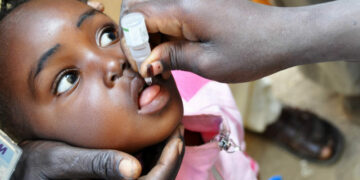The recent reports by the National Primary Health Care Development Agency (NPHCDA) of increasing cases of tetanus and diphtheria infections threatening the lives of pregnant women and children in Nigeria are deeply troubling.
It is instructive to note that studies have shown a disturbing link between these infections in expectant mothers and adverse outcomes including premature births and fetal loss.
This should serve as a clarion call for improved maternal and child healthcare in Nigeria.
With Nigeria already accounting for 12% of global maternal and child mortality, ranking only second behind India, the resurgence of tetanus and diphtheria infections poses a significant threat.
The Nigeria Centre for Disease Control and Prevention (NCDC) disclosed that in Epi-Week 48, 2023, 230 suspected cases of diphtheria were reported across six states and 28 Local Government Areas (LGAs).
It said that in response to the outbreak in December 2022, the NCDC activated a multi-sectoral National Diphtheria Emergency Operations Centre as a mechanism for coordinating surveillance and response activities across the country.
Diphtheria is a bacterial infection caused by Corynebacterium diphtheriae which primarily affects the mucous membranes of the throat and nose.
According to experts, it releases a toxin that can lead to the formation of a thick grey or white coating in the throat, making breathing difficult, while tetanus, on the other hand, is a bacterial infection caused by Clostridium tetani bacterium and it typically enters the body through wounds or cuts and produces a toxin that affects the nervous system.
Tetanus is characterised by muscle stiffness and spasms, often starting in the jaw (hence the term “lockjaw”), and spreading to other muscles and the infection can be fatal.
This newspaper is particularly worried that this development is coming on the heels of a recent report that Nigeria accounts for the second-highest number of maternal and child deaths globally.
The major causes of maternal mortality in Nigeria align with worldwide data – hemorrhage, infections, unsafe abortions, preeclampsia and obstructed labor.
Immunisation against these and other childhood diseases is crucial, yet Nigeria contributes 30% of the global number of unimmunised under-five children.
Routine immunisation rates remain low, especially in rural areas where over 6 million children have gone completely unimmunized in the past five years.
Routine immunisation schedule in Nigeria stipulates that infants should be vaccinated with the following vaccines: a dose of Bacillus Calmette-Guerin (BCG) vaccine at birth (or as soon as possible); three doses of diphtheria, pertussis and tetanus (DPT) vaccine at 6, 10 and 14 weeks of age; at least three doses of oral polio vaccines.
Though immunisation is key and recommended for the safety of pregnant women and their babies, this newspaper notes that Nigeria is still far from attaining immunisation threshold.
Governments’ efforts to strengthen routine immunisation coverage and reduce under-five mortality have had limited success over the last decade.
Yet, tetanus and diphtheria immunisations have been proven to be safe for pregnant women, with negligible risks compared to the severe consequences of the infection.
Hence, this is a wake up call to the agency saddled with the responsibility to mobilise and see to the wholistic implementation of routine immunisation across the country, including the rural areas where they’re in dire need of it.
There’s no gainsaying the fact that ignorance and the illiteracy of most of the rural dwellers are contributory factors to the poor health outcomes being recorded in the country, especially in areas of maternal and child health, so, making it imperative to raise awareness about the potential dangers some of these factors pose during pregnancy.
It is commendable that a multi-sectoral National Diphtheria Technical Working Group (TWG) had been established to bring together relevant stakeholders to regularly meet and monitor the disease trend and coordinate response activities in the country.
Also noteworthy is the deployment of NCDC Rapid Response Teams to some of the affected states (Kano, Katsina, Lagos, Osun, and Yobe) to support response activities.
While understanding the gravity of the situation, the paper moots for a collective effort to ensure that every pregnant woman is informed about the risks associated with tetanus and diphtheria, as well as the importance of seeking immunisation.
Furthermore, we canvass a strong, virile Primary Health Care (PHC) system which is vital to deliver vaccines and immunisation to all children and pregnant women, who are the most vulnerable.
As a newspaper, we call on all stakeholders – the government, civil society, traditional and religious institutions, international partners and others – to treat this as the emergency it is.
The lives of Nigeria’s mothers and children hang in the balance. Only concerted action can stave off preventable deaths, safeguard maternal health, and secure every child’s right to survive and thrive.





